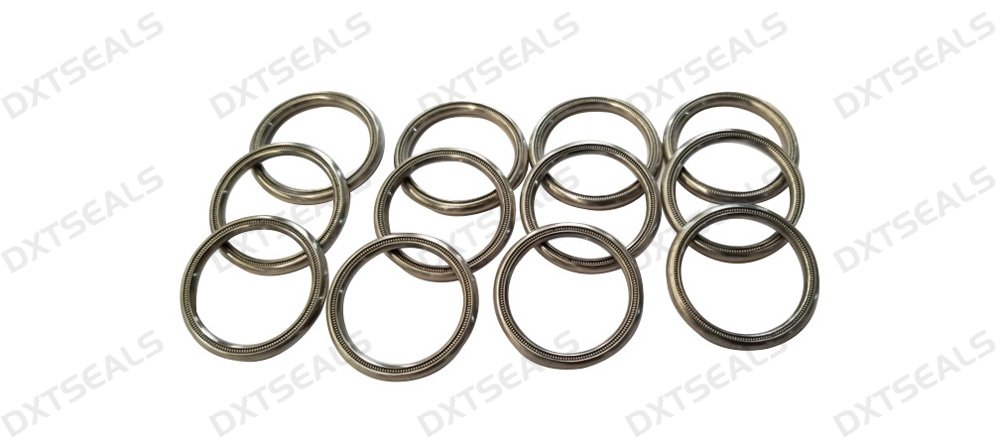
Metal C-ring seals are a specialized type of sealing solution, designed to perform exceptionally well in high-pressure, high-temperature, and chemically aggressive environments. Unlike traditional elastomeric seals, metal C-ring seals are made from metal alloys that provide enhanced durability, resistance to extreme conditions, and long-term reliability. This article explores the performance advantages of metal C-ring seals and how they are applied across various industrial sectors.
1. What Are Metal C-Ring Seals?
Metal C-ring seals are engineered from high-strength metals such as stainless steel, Inconel, or other alloys. The "C" shape allows the seal to compress under pressure, creating an airtight and leak-proof seal in applications that demand robust performance. These seals are often used in environments where rubber or elastomeric seals would degrade or fail due to heat, pressure, or chemical exposure.
2. Performance Advantages of Metal C-Ring Seals
High-Temperature Resistance: One of the standout features of metal C-ring seals is their ability to withstand extreme temperatures. Many metal C-ring seals can operate in temperatures as high as 1000°C (1832°F), making them ideal for applications such as turbines, engines, and heat exchangers, where rubber seals would melt or fail.
- Excellent Pressure Handling: Metal C-ring seals are designed to operate in both high and low-pressure environments. Their unique design allows them to compress under pressure, forming a tight seal that remains effective in conditions ranging from vacuum to ultra-high pressure. This makes them suitable for applications in hydraulic and pneumatic systems.
- Chemical and Corrosion Resistance: Depending on the material used, metal C-ring seals offer excellent resistance to chemical corrosion, oxidation, and aggressive fluids. This property makes them ideal for use in industries like oil and gas, chemical processing, and aerospace, where exposure to harsh chemicals and corrosive environments is common.
- Durability and Longevity: Metal C-ring seals provide superior durability compared to traditional elastomeric seals. They are less prone to wear, cracking, or degradation over time, leading to longer service life and reduced maintenance costs. This makes them highly cost-effective in applications where reliability is critical.
- Versatility and Customization: Metal C-ring seals are available in a variety of sizes, shapes, and materials, allowing for customization to meet the specific needs of different applications. This versatility makes them a preferred sealing solution for complex or demanding industrial projects.
3. Common Materials for Metal C-Ring Seals
- Stainless Steel: Known for its corrosion resistance and strength, stainless steel is widely used for C-ring seals in applications that require both high-temperature and chemical resistance.
- Inconel: This nickel-based superalloy is resistant to oxidation and corrosion and can withstand extreme temperatures, making it a popular choice for seals in aerospace and power generation industries.
- Hastelloy: Hastelloy is known for its resistance to chemical attack, making it ideal for applications in chemical processing plants where exposure to aggressive chemicals is common.
4. Applications of Metal C-Ring Seals in Industry
Metal C-ring seals are highly versatile and can be found in a wide range of industrial applications. Here are some of the primary industries where these seals are essential:
- Aerospace Industry: Metal C-ring seals are used in aircraft engines, fuel systems, and landing gear, where their ability to withstand high pressure, vibration, and extreme temperatures is crucial. Their reliability ensures safety and performance in critical aerospace components.
- Oil and Gas: The oil and gas industry relies on metal C-ring seals for use in valves, pumps, and compressors. These seals must perform under extreme pressure, temperature, and chemical exposure, which are common in offshore drilling and refinery operations.
- Power Generation: Metal C-ring seals are used in steam turbines, gas turbines, and nuclear reactors in power plants. Their high-temperature and pressure resistance makes them essential for maintaining efficient and leak-free operations in energy production systems.
- Chemical Processing: In chemical plants, metal C-ring seals are used in reactors, pipelines, and processing equipment. Their resistance to harsh chemicals and corrosive materials ensures that seals remain effective and long-lasting, even in the most aggressive environments.
- Automotive Industry: Metal C-ring seals are often found in high-performance automotive engines and exhaust systems, where they maintain their sealing integrity under high-temperature and high-pressure conditions, improving overall vehicle efficiency and reliability.
5. Advantages of Metal C-Ring Seals Over Traditional Rubber Seals
While rubber seals are commonly used in many industries, metal C-ring seals offer several distinct advantages for more demanding applications:
- Temperature and Pressure Performance: Metal C-ring seals outperform rubber seals in extreme temperature and pressure conditions, where rubber would degrade or fail.
- Long-Term Durability: Metal C-ring seals have a longer service life, reducing the need for frequent replacement or maintenance, which is especially beneficial in critical applications where downtime is costly.
- Chemical Compatibility: Metal seals provide superior resistance to aggressive chemicals, oils, and solvents, which would cause rubber seals to swell, crack, or degrade over time.
6. Conclusion
Metal C-ring seals provide a high-performance sealing solution for industries that operate under extreme temperature, pressure, and chemical exposure. Their durability, customization options, and long-lasting performance make them ideal for aerospace, oil and gas, power generation, and chemical processing industries. As industrial demands grow, metal C-ring seals continue to offer a reliable and efficient solution for sealing challenges in the most challenging environments.
